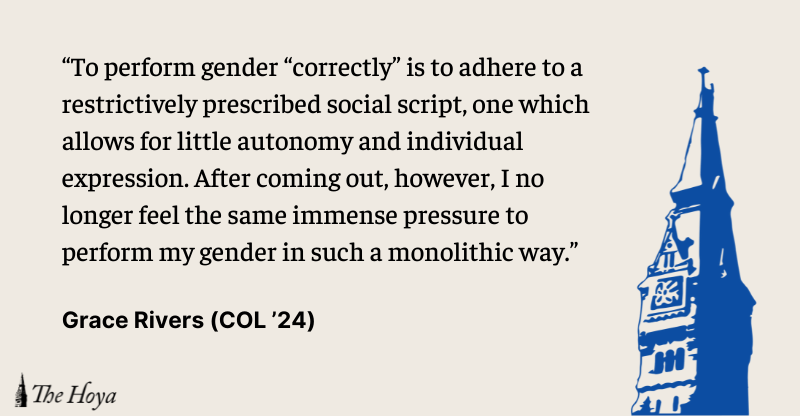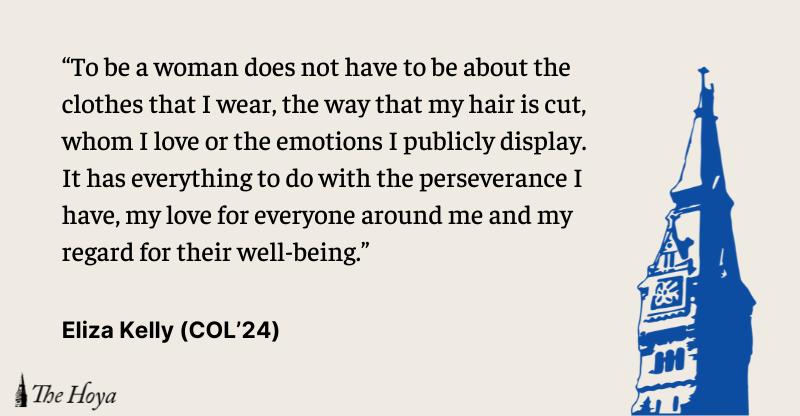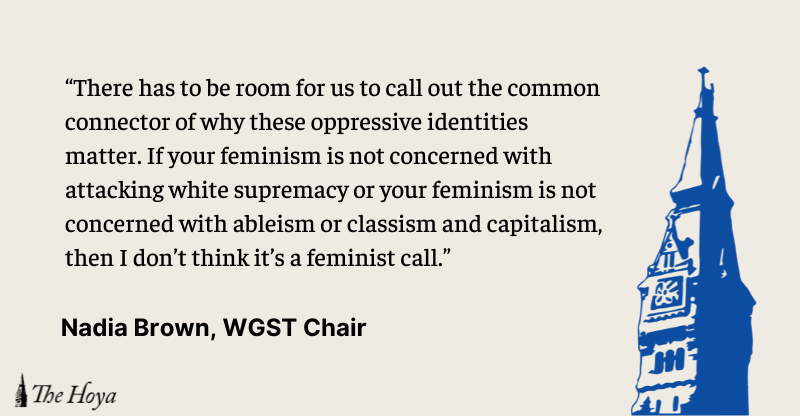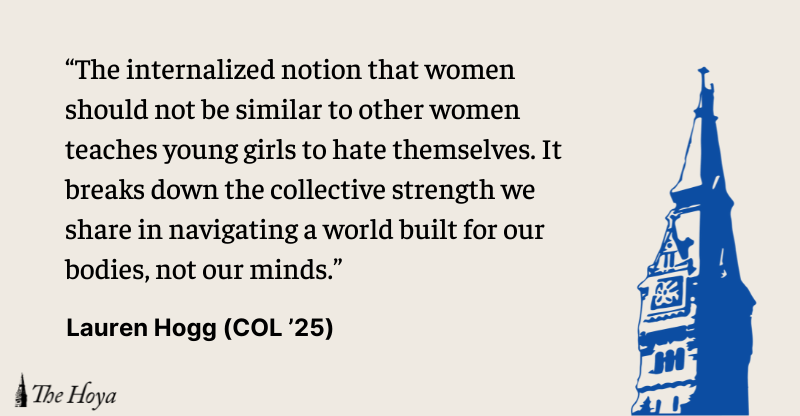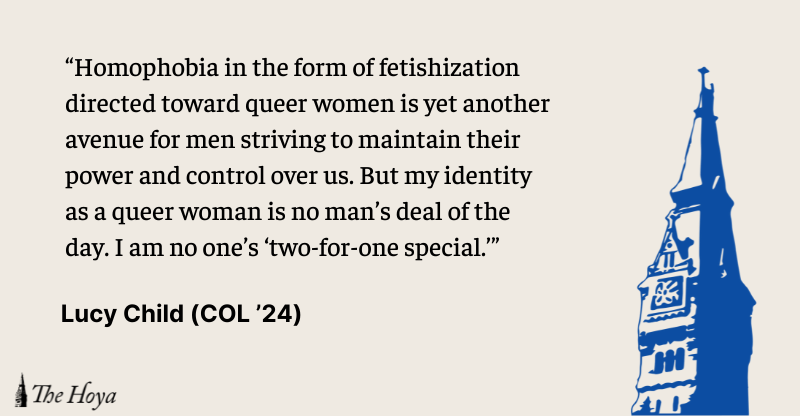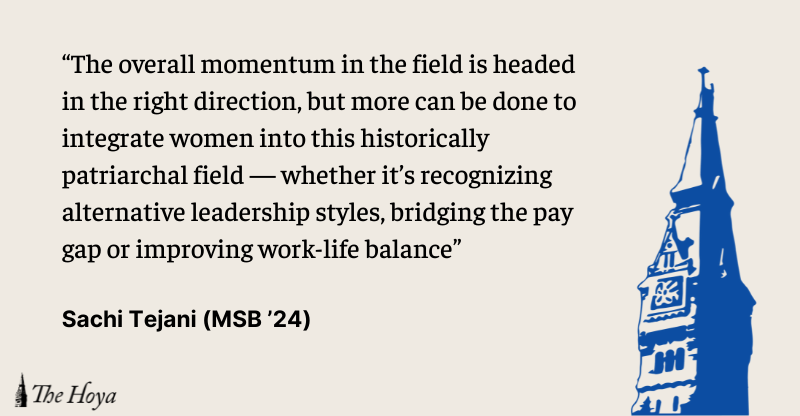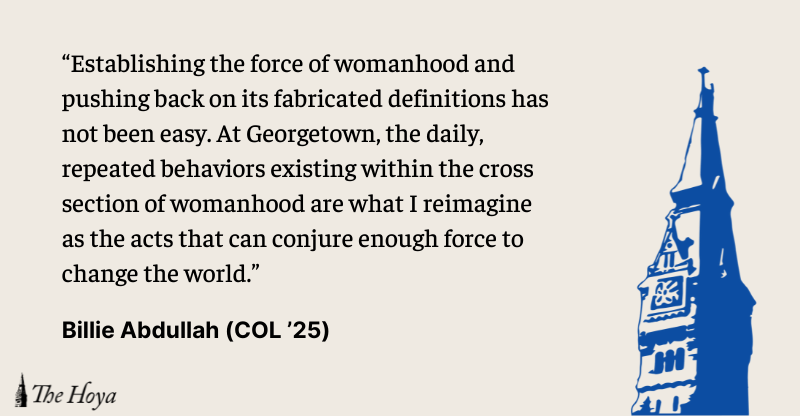Being an LGBTQ woman gives me a unique connection to femininity and allows me to redefine what my womanhood means to me. I have a deeper appreciation for the attributes that make women beautiful and powerful, and I no longer feel obligated to conform to patriarchal definitions of beauty, which prioritize the desires of men. However, my redefinition of femininity still frequently comes into conflict with traditional norms of femininity.
To perform gender “correctly” is to adhere to a restrictively prescribed social script, one which allows for little autonomy and individual expression. After coming out, however, I no longer feel the same immense pressure to perform my gender in such a monolithic way.
The realization that I was not attracted to men led me to no longer seek their approval or validation. My femininity no longer entailed shrinking my body, remaining polite when I felt angry and dressing and acting solely to please others. Instead, my femininity now means having power and a voice. It means existing freely in a body that I choose what to do with. It means being unapologetic in occupying the same spaces of power to which men feel entitled. It means feeling beautiful, confident and powerful without external validation or approval.
There is no correct way to be a woman, and this journey of defining my own femininity has been most liberating — I stopped shaving my armpits and legs, I didn’t feel the need to hide blemishes under concealer, I wore androgynous clothing and I stopped trying to make myself small and quiet. In essence, I did what others would claim is too provocative for women to do.
I have been posting on TikTok for nearly two years, and this content ranges from showcasing my eccentric outfits to expressing my bold opinions about social justice and talking about my choice not to shave. I have connected with a community of women who are on a similar journey of redefining their femininity, and my content has elicited hundreds of comments from other women. By releasing this pressure to perform femininity in a particular way, I have connected with women from around the world who were on similar pursuits of individuality.
Despite these realizations, there have been numerous instances during this journey where my expression of femininity has conflicted with my family’s expectations.
When I last attended mass with my family, I wore jeans with rainbows outlining the back pockets, white shoes with a bold rainbow heart intertwined in the front of the laces, and a mask with a black fist in support of the Black Lives Matter movement and sayings such as “love is love.” My family members, confused and unhappy by this activism, inquired why I would wear such things to church, given that they expected women to be quiet and agreeable. I remained steadfast in my commitment to make a statement and remain true to my convictions. I would no longer adhere to their expectations, nor would I be deterred by their anger.
In another instance, when I boisterously expressed my stance on a recent Supreme Court case that could potentially upend a woman’s right to an abortion, a family member remarked, “I hope you don’t talk like that in front of other people.” They implied that such opinions were too offensive or bold for a woman to express, yet ignored the reasons behind these opinions and anger. I didn’t need anyone to validate my indignation or criticize my refusal to adhere to socially prescribed norms of femininity — this anger was consistent with my definition of femininity.
As I continue to grow and discover what it means to be a woman in the LGBTQ community, I recognize that many people will not approve of my approach to femininity — I am nonetheless empowered to exist without restraint, as I embrace the strength of womanhood and connect with other women who share in the journey.
Grace Rivers is a sophomore in the College.


